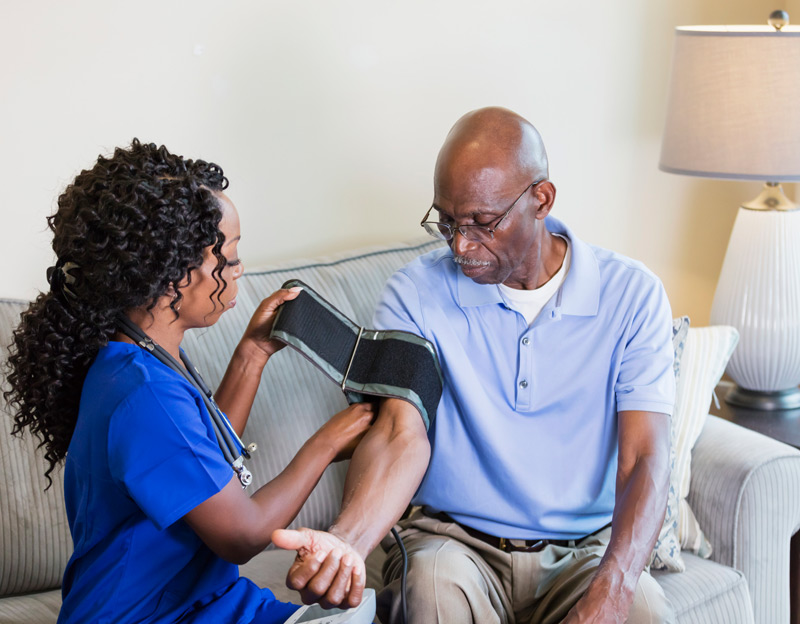Home Health Aide


Mercy Compassionate Home Care offers home health aide services to individuals no longer able to take care of themselves at home. The services we offer will vary depending on the individual’s unique health condition and needs.
Signs It’s Time For A Home Health Aide
If the family caregiver is no longer able to keep up with caregiving responsibilities, it may be time for the help of a home health aide. Signs that a loved one is no longer able to live alone at home include:
- Leaving the stove turned on
- Difficulty preparing simple meals
- Poor eating habits or nutrition
- Forgetting to bathe regularly
- Wandering away from home
- Unsafe driving habits
- Frequent falls or having difficulty walking without help
- Forgetting to go to the doctors’ offices or other appointments
Some pushback is normal. Many older individuals hate to lose their independence and admit that they need help. However, there comes a time when a loved one is no longer safe on their own. It’s important to discuss various care options before determining the right approach to home care.

Conditions That May Require A Home Health Aide
Individuals diagnosed with the following conditions or illnesses may need the help of a home health aide:
- Age-related problems
- Chronic illnesses
- Disabilities
- Cognitive impairments
- Alzheimer’s disease or dementia
- Parkinson’s disease
- Diabetes
- Arthritis
- Cancer
- Stroke
The Duties And Responsibilities Of Home Health Aides
Home health aides might live with the care recipient or they may make routine home visits. Along with doing routine chores, such as cooking, laundry, and shopping, home health aides also:
- Assist with daily activities, such as eating, bathing, toileting, dressing, grooming, and moving from one place to another
- Check vital signs such as blood pressure, respiration, and pulse
- Monitor the individual’s physical and mental condition, and the patient’s ability to exercise, eat, drink, and use the bathroom
It’s important to note that home health aides do not provide physical and occupational therapy or skilled nursing care. But they are often responsible for monitoring the individual’s physical and mental health, and reporting on conditions to a registered nurse or other health care professional.
Benefits Of A Home Health Aide
Hiring a home health aide can bring the following benefits:
- Faster recovery from illness or injury
- Improved quality of life
- Maintaining or improving the individual’s current condition or level of function
- Regaining self-sufficiency in the home
- Slowing the decline of serious conditions
- Improved symptom management
Questions To Ask When Considering Home Health Aide Services
Patients and their family members can ask the following questions when considering a home health aide agency:
- Can you provide resumes, references, and reviews?
- What is your backup plan for emergencies?
- How are home health aides credentialed and screened?
- How do you track home health aide duties?
- How can I receive status updates on services the health aide is providing?
- Do you have caregivers with experience caring for patients with a specific illness or condition?
- What is your normal response time and emergency response time?
